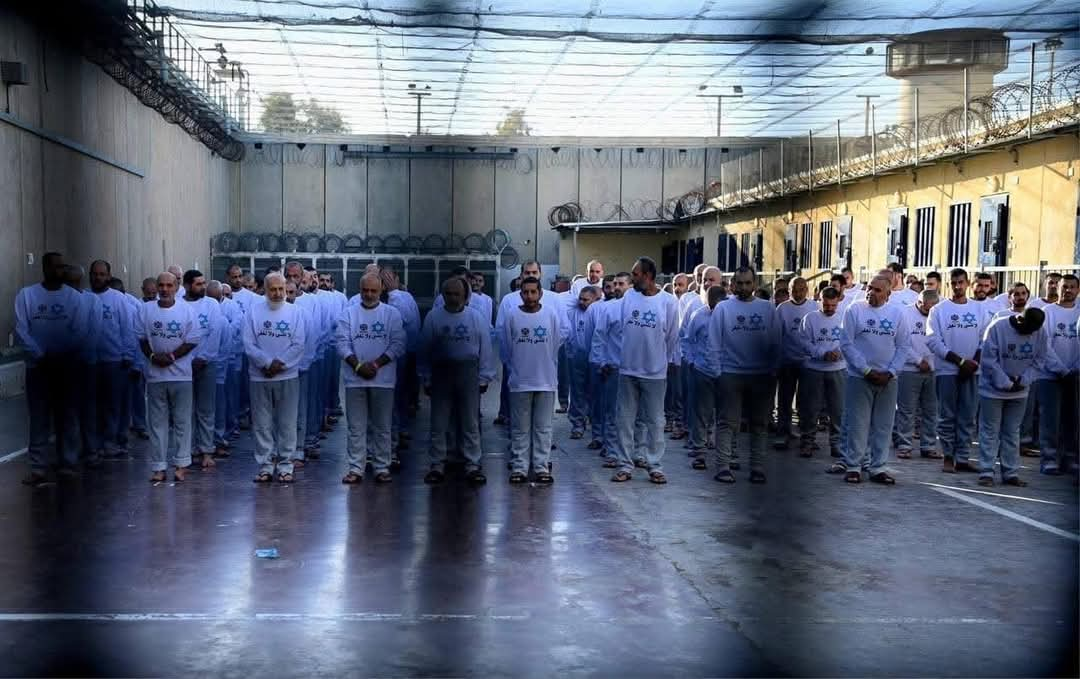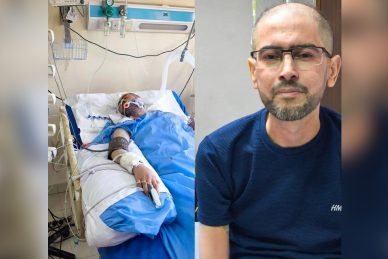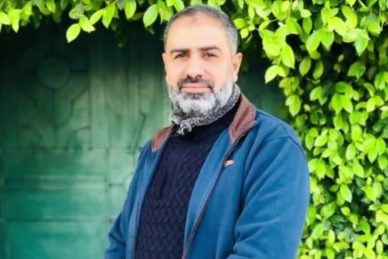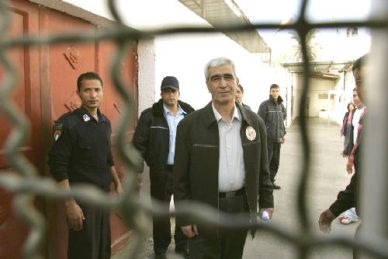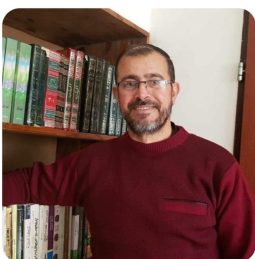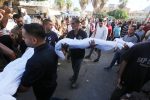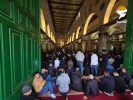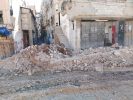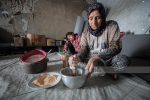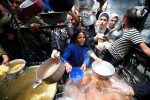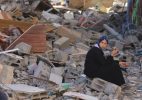GAZA, (PIC)
The geographical boundaries of the genocide perpetrated by Israel against the Palestinian people have not been limited to the Gaza Strip. It has extended to all Palestinian territories and even refugee camps outside Palestine’s borders. Prisons have become one of the main arenas where the occupation has committed its Nazi-like massacres.
The conditions of prisoners and the prisons themselves, already dire before October 7, have deteriorated beyond what many could imagine—so much so that comparing them to the notorious Abu Ghraib prison is now considered an embellishment of the current Israeli prison reality.
Unimaginable testimonies
Testimonies from released prisoners reveal parts of this grim reality, which has been the subject of many reports since the beginning of the Israeli war on the Gaza Strip. However, recent statements from lawyers who visited prisoners from the Gaza Strip held in underground prisons, as well as statements from prisoner leaders, shed light on conditions far worse than previously reported.
In a rare visit by Palestinian lawyers to the secret section under “Nitzan-Ramla” prison, known as “Rakevet,” lawyers from the Commission of Detainees and Ex-Detainees Affairs and the Palestinian Prisoners Club managed to meet several detainees from Gaza being held in this heavily guarded section.
According to the lawyers’ testimony, the visit began in a dilapidated building resembling a warehouse, where they were led through a narrow hallway into a basement with stairs descending underground—described as full of holes, cockroaches, and eroded walls.
The lawyers said fear and terror were evident on the detainees’ faces, and it was not easy to start a conversation under such tight surveillance. However, they managed to reassure them after several attempts.
Detainee (S.J.), who was arrested in December 2023 and transferred through several prisons and camps—from Sde Teiman to Ashkelon, then to the Russian Compound, Ofer, and finally to “Rakevet”—reported enduring six consecutive days of harsh interrogations. During that time, he was forced to wear diapers, denied food and water, and subjected to loud music.
Detainee (W.N.) spoke of being subjected to military-style interrogations, threats, and sexual abuse via inspection devices. He now suffers from health problems and, like his fellow detainees, is forced to sit on his knees for hours while wearing torn and tattered clothes.
He said: “We’re forced to curse our mothers. I was beaten so badly that my finger was broken—this method was used with other prisoners as well.”
Detainee (Kh.D.) described repeated interrogations and severe torture, including stress positions on chairs, beatings, and being thrown on the ground. He suffers from scabies and severe chest pain due to restraints. He stated that the prison administration uses thumb-breaking as a form of punishment.
Detainee (A.G.) was held for 35 days at Sde Teiman camp without clothing or blankets, in the cold. He said: “I underwent five continuous days of ‘disco’ interrogation and lost consciousness multiple times. We were dragged to the yard in shackles where the guards assaulted us. We never saw the sun, and even praying was forbidden.”
The “Rakevet” prison exemplifies the detention centers established by the occupation since the start of its aggression on Gaza, alongside other facilities like Sde Teiman, Anatot, Ofer, and Menashe camp for detainees from the West Bank. All of these have become venues for physical and psychological torture.
According to data from the Israeli Prison Service as of early April 2025, the number of detainees from Gaza had reached 1,747 classified as “unlawful combatants”—a figure that does not include those held in military camps run by the Israeli army.
Retaliation against prisoner leaders
With the launch of the genocidal war on the Gaza Strip, the Zionist prison service—under direct orders from extremist Israeli minister Itamar Ben Gvir—began implementing systematic policies targeting leaders of the prisoner movement. These include long-term isolation, repeated abuse, medical neglect, and slow attempts at liquidation behind bars.
The Popular Front for the Liberation of Palestine warned in a press statement of imminent danger to the life of its imprisoned Secretary General Ahmad Sa’adat, held in isolation cells in Megiddo prison.
The group revealed that Sa’adat was subjected to brutal assault during his last transfer and has been denied family visits and legal rights, worsening his already deteriorating health.
It also reported that fellow leader Ahed Abu Ghoulmeh was transferred to Gilboa prison under harsh conditions as part of arbitrary transfers meant to exhaust and weaken prisoners.
The Asra Media Office published a report noting that imprisoned leader Abbas Al-Sayyid, who has been serving 35 life sentences since 2002, is enduring solitary confinement at Ramon prison, facing repeated torture and medical neglect that led to widespread skin infections and significant vision loss.
The situation is even worse for leader Abdullah Al-Barghouthi, who has faced repeated assassination attempts through savage beatings, dog attacks, and the pouring of burning substances on his body—resulting in comas with no genuine medical intervention.
Similarly, prisoner Hassan Salameh has been in isolation for months, suffering from severe health deterioration, vision loss, tooth loss, and extreme emaciation, with his weight dropping to 62 kg. Leader Muhannad Shreim is struggling with movement and speech after losing about 45 kg.
The Asra Media Office noted that leader prisoner Muammar Shahrour suffers from rheumatism and is denied treatment. He is held in a cold, damp cell where he is beaten and starved daily, intensifying his physical and psychological suffering amid international silence.
In one of the most alarming cases, 67-year-old detainee Mohammed Al-Natsheh fell into a full coma due to internal bleeding and kidney failure after being severely tortured following his arrest in March 2025. Despite being transferred to Hadassah Hospital, his family and lawyer were not allowed to visit or check on his condition—raising serious suspicions of deliberate attempts to conceal evidence of torture.
According to his wife’s testimony, he was taken directly to the Ofer interrogation center after arrest, where he underwent prolonged and brutal interrogation before being transferred unconscious to the hospital.
The Commission of Detainees and the Palestinian Prisoners Society revealed that imprisoned leader Marwan Barghouti, a member of Fatah’s Central Committee, has suffered repeated assaults in Megiddo prison—including severe beatings on the head, ears, and chest—leading to internal bleeding in his right ear and acute infections, amid deliberate medical neglect.
Systematic crimes and escalating murders
The Palestine Center for Prisoners Studies reported that Israel continues to commit crimes against prisoners, which have intensified during the genocidal war on the Gaza Strip, reaching the level of murder. Since the beginning of the year, the occupation has assassinated 12 prisoners.
The center stated that the number of martyrs from the prisoners’ movement rose to 303 this year, with 12 dying inside occupation prisons—11 of them due to deliberate medical neglect.
Among the martyrs were five detainees from the Gaza Strip, arrested during the ground invasion after Israeli forces raided homes, schools, and hospitals. All five were civilians with no ties to resistance factions and died from torture. Their names are: Mohammed Al-Asali, Ibrahim Adnan Ashour, Ali Al-Batsh, Musab Abu Haniyeh, and Raafat Abu Fanouneh.
The center also reported that seven martyrs from the occupied West Bank died due to medical neglect: Mohammed Yassin Jabr (Bethlehem), Khaled Abdullah (Jenin), Moataz Abu Zneid (Al-Khalil), Musab Hassan Odeili (Jenin), Nasser Khalil Radaydeh (Bethlehem), Mohieddin Fahmi Najm (Jenin), and the child Walid Ahmed (Ramallah)—many of whom suffered due to starvation policies.
The center emphasized that the policy of killing prisoners has escalated due to broad support from ministers in the extremist Israeli government, who have given security agents the green light to carry out internationally prohibited torture—backed by legal and legislative cover.
It warned against the continuation of the killing policy inside Israeli prisons due to the Israeli repressive and aggressive practices and the government’s insistence on protecting those responsible for these crimes.
The Palestine Center for Prisoners Studies called on the international community and human rights institutions to intervene immediately, form investigative committees to document the killings and torture of prisoners, and pressure the occupation to stop these crimes. It also urged the International Criminal Court to prosecute Israeli leaders as war criminals for authorizing the killing of prisoners.

